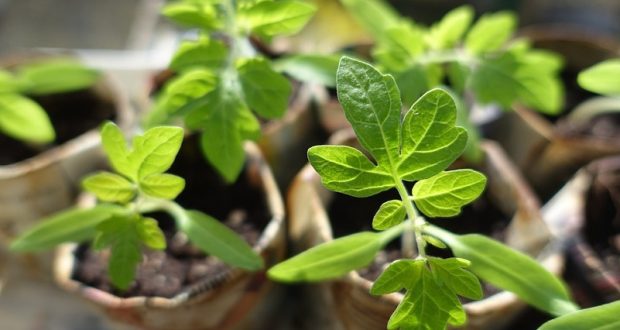By Brian David (Mariposa Master Gardener) —
February and March are months to try a spring garden. Spring gardening is a tango with fluctuating temperatures. You may need to combine starting seed indoors with direct outdoor seeding.
Spring (cool season) vegetable seeds include several nutrient dense vegetables often planted at the end of summer for fall gardens. Cool weather vegetables include: beets, radishes, leeks, carrots, cabbages, cauliflowers, lettuces, broccolis, and mustards. Cool season vegetables can handle light frosts and make their way into temperatures beyond the mid-eighties, though they start bolting (going to seed) in hot weather.
The seed germination chart shows these cool season vegetables with their soil temperatures in degrees Fahrenheit.
| Vegetables | Minimum | Optimum range | Maximum | Germination |
| Root Crops | ||||
| Beets | 40 | 65-85 | 95 | 7-14 days |
| Radishes | 40 | 65-85 | 95 | 5-7 days |
| Leeks | 32 | 65-85 | 95 | 5-7 days |
| Carrots | 40 | 65-85 | 95 | 12-15 days |
| Leaf Crops | ||||
| Cabbage | 40 | 60-85 | 95 | 5-10 days |
| Cauliflower | 40 | 60-85 | 95 | 5-10 days |
| Lettuce | 32 | 60-75 | 85 | 7-10 days |
| Broccoli | 40 | 60-85 | 95 | 5-10 days |
| Mustard | 40 | 60-75 | 95 | 5-10 days |
Before planting cool weather vegetable seeds test your soil temperature with a soil thermometer. The hardware store or nursery can order one for you, or you can buy one online. You should be able to get a decent soil thermometer for about $15.00.
Take a soil’s temperature mid-day, placing the probe about 3 inches into the soil. You can first loosen the soil with a narrow stick or screwdriver. Ensure the soil covers the thermometer’s probe and leave it in the soil for five minutes. You can also take your soil’s temperature in the morning and afternoon, add your readings and divide by two for the average soil temperature. If you are planting a large section take readings every ten feet, then add your temperatures and divide by the number of samples you took.
Based on your soil temperatures you can directly seed into your garden plot, or start the seeds indoors. Seeds need a moist-aerated growing environment (the next article will provide tips on starting seeds indoors). Take your soil temperature for direct and seed tray plantings. Cooler soil equals longer germination (see chart).
What can you expect from a cool weather garden? Your sprinters (vegetables coming in quickly) include: radishes, arugulas, and mustards. They should be ready for meals in about a month; thirty days after germinating.
The next vegetables to mature are: carrots, leeks, kale, collards, lettuces, broccolis, early cabbages, and winter cauliflowers. These mid-distant runners pace themselves for maturing in about 60 days after germination.
Cool weather vegetables running long-distance include: beets, carrots, traditional cabbages and cauliflowers. These pull into your kitchen in about three months, or ninety days after germinating.
There are many other cool season vegetables not on the chart above like: kohlrabi, parsnip, rutabaga, lobe onions, Brussels sprouts, fava bean, collards, perennial flowers, perennial herbs, Swiss chards, chives, bunching onions, kales, arugulas, and spinach varieties. You can try some of these in your spring garden. What you do not get to for your spring garden you can plant the end of this summer for a cool season fall garden. (Fall gardens have the advantage of warm soils for higher germinating rates). I am hoping you will be pulling produce from this year’s spring garden while putting in your summer seeds and transplants.
J.F. Harrington, Dept. of Vegetable Crops, University of California, Davis
California Master Gardener Handbook, 2nd edition, (table 5.2, page 114)
https://www.hort.purdue.edu/newcrop/afcm/mustard.html
For further gardening information and event announcements, please refer to the Mariposa Master Gardener website (http://cemariposa.ucanr.edu) and Facebook page (Mariposa Master Gardeners). UC Master Gardeners staff the help desk and phone helpline serving Mariposa County, including Greeley Hill, Coulterville and Lake Don Pedro (Phone: 209-966-7078; Email: mgmariposa@ucdavis.edu




